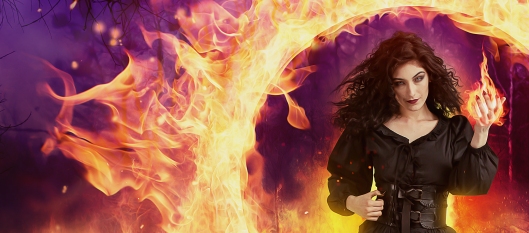Tags
coyote, enlightenment, good reads, india, love and loss, must read, the spiritual centre of the world, writer's block
If you haven’t heard of the On Fire anthology, this mini-interview and excerpt series will showcase the amazing authors I get to work with and their writing. Meet Phoebe Tsang.

What audience are your stories intended for?
Anyone who knows love, loss, and the ache of longing.
How do you deal with writer’s block?
Fall in love – and stay in love! – that solves most of life’s problems.
What advice do you have for beginning authors?
Live first, write later.
From “Setting Fire to Water” by Phoebe Tsang:
The websites called India “the spiritual centre of the world,” as if India was not a country but an essential, hidden organ without which no other country could exist. A purplish, pulpy spleen or belaboured heart, distended and riddled with veins. The world flocked to India to discharge its ills and be recharged by life-giving forces not found in the staple North American diet: the zeal of devotion, the taxation of ritual, the rapture of sacrifice. Surfing the web late into the night, Coyote pieced together a vision of a hitherto unimaginable way of life; a life which, if it had previously, incongruously been presented to him among the glossy pages of the Condé Nast Traveler, would have horrified him. He would perform the rites of penance until his hair grew past his shoulders. He would backpack through the desert until his sandals were shreds. He would learn to live without money. He would sleep naked under a sky where the sun and moon coexisted peacefully, as in some prehistoric, mythical age when there was no such thing as death.
Coyote would vanish, leaving no trace except perhaps the memory of love—self-conscious, precarious and half-baked, but love nonetheless.
The stack of spent matches at Coyote’s feet resembled a miniature pyre. He crushed the empty matchbox and dropped it on the heap.
“Umm…does anyone have a lighter?”
The propeller churned. The audience was slow to react. A rustling of parkas, of crackling static as they groped in their pockets, fumbled amongst bottles of mineral water, sunblock, Advil, granola bars, mosquito repellent. Between them, they were well-prepared for a multitude of small calamities. These people could not imagine other, more critical emergencies involving the need to swim, or failing to swim, or sinking like a stone in the opaque water.
Take the craft that bore them, a vessel doomed to fail a safety inspection at any respectable marina back home. Where were the lifejackets, the distress flares, the spare drain plugs? Coyote searched for the capacity plate—wasn’t the boat listing alarmingly to starboard on account of one passenger whose girth was the equal of two persons at least?—with a familiar, if indistinct, sensation: a potent cocktail of dread and curiosity.
One morning, unprepossessing as all the others at first, Coyote accelerated the speed of his treadmill, by increments, beyond the spectrum of the humanly possible. His feet flew faster and faster until he seemed to glide for effortless moments above the black rubber conveyor belt, furiously spinning. Approaching the speed of light. Coyote spread his arms in the gesture of a marathoner at the finish line, his body transcending the possible as if crossing the shimmering threshold between dreamer and dream. Primed for flight, the machine betrayed his trust, his next step skewed inward, his ankle painfully angled by the sudden torque, flinging him off-course into the handrail while the belt torque blithely continued to run. A fellow early bird hurried over with a timid: “Are you all right?”—as if all right was any plausible description for this tumble out of sublime weightlessness into winded mortality. Coyote bowed his head, gripping the handrail, his breaths harsh and irregular.
The Samaritan retreated.
The Americans rummaged through their drugstore supplies, seeking some sort of fire-starting device and finding none, and the stirrings of a reluctant foreboding returned to Coyote. Without intending to, he searched his own pockets even though he had smoked less than a handful of cigarettes in his life, all of them in some poorly-lit bar after an inadvisable amount of alcohol, in the aching, ever-restless company of Emmeline, whose presence was at this moment more palpable than when she was within reach.
Phoebe Tsang is British-Canadian poet, short-story writer, librettist, and violinist. She is the author of the full-length poetry collection Contents of a Mermaid’s Purse (Tightrope Books), and her poetry and fiction has been published in anthologies and journals including the Asia Literary Review and the Literary Review of Canada. Her short fiction was long-listed for the 2014 Bristol Short Story Prize, and short-listed for the Matrix Lit POP Awards in 2016, rained, and, her chapbook of collaborative visual poems with artist John Riegert, was published in Spring 2017 by Puddles of Sky Press. She is currently completing her first solo album of poetry, music and song, through a grant from the Jack Straw Cultural Center (Seattle, WA).
ON FIRE is available now: Amazon, Nook, Kobo, and our press store.
